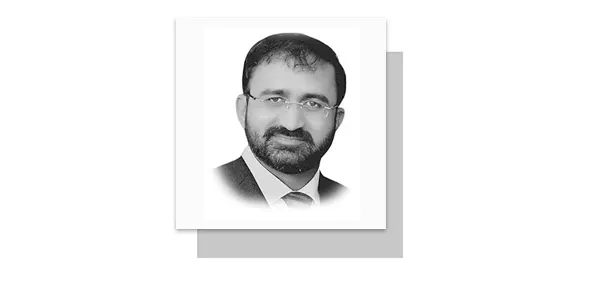THE contemporary Pakistani Political Office faces various political controversies, ranging from sectarianism and extremism to authoritarianism and corruption. These disagreements not only threaten the stability and prosperity of Pakistan but also hinder progress toward modernity and democracy. To find a solution to these controversies, institutions can draw inspiration from the life and teachings of the Prophet Muhammad (SAW).
Finding a solution to political conflicts in contemporary Pakistani politics in the light of the Seerah of the Prophet requires a comprehensive analysis of the main factors affecting this issue, including justice, mercy, unity, and leadership. It also involves balancing different trade-offs and addressing different challenges while considering the impact on the environment and future generations. By following the example of the Prophet (SAW) and his teachings, Pakistan can overcome political differences and build a more just, peaceful, and prosperous environment for all.
This is an attempt to investigate the main factors that lead to political decline and what affects the resolution of political disputes in contemporary Pakistan in the light of Seerat-ul-Nabi (SAW). Pakistan today can learn from this example and strive to establish a participatory democratic system of government that respects human rights and promotes the common good of all. Political Persuasions As we have seen, Muhammad’s S.A.W. example pervades the Islamic heritage. As a result, his theories on political power and political activity have had a significant impact. It is important to note that Islamic political thinking is a complicated subject. It is reasonable to assume, however, that all of the political system employed in Pakistan is oriented to Islam and Muhammad’s S.A.W. example in some manner. The Holy Quran is divinely led in all of its words, phrases, speeches, acts, and actions, and all of these things are a fantastic source for leading a good Islamic life. Abolition of all social ills All societal problems, moral illnesses, and nasty and immoral activities may be abolished and erased if every Pakistani follows the Holy Prophet’s footprints. And follow Him in one direction.
The Prophet himself was a firm believer in teaching by example. His lectures educated people to be honest and responsible citizens, establishing a tradition built on human love and respect. This was one of the primary reasons why people from all walks of life adopted Islam in large numbers throughout the Prophet’s lifetime; they were struck by his demeanour, particularly while dealing with others, whether friend or foe. After taking over Makkah, for example, the Prophet had all the resources to destroy all of his adversaries who had ruthlessly persecuted him in Makkah, but instead, he let them go free. By doing so and giving kindness to them, all of Makkah became Muslims, and shortly after, all of Arabia joined Islam throughout his lifetime. This was unheard of in human history. His forgiving disposition, however, should not be seen as a sign of character weakness, since following his return to Makkah in 630 C.E., the Prophet had the military capacity to eliminate any of his opponents in the Arabian Peninsula, but he chose not to. “For him, the battlefield was the final choice for defending a just cause. But when obliged to fight for human rights, he did not back down. The effectiveness of Prophet Muhammad’s work was obvious in the way he entirely changed a war-loving and primitive people into a cultured nation that eventually dominated from Spain to China for over a thousand years. According to Weston (2008), the Prophet and his followers established a manner of life that was more equal and just than anything that Arabs or the area as a whole had ever known. To appreciate the principles of Islam and its numerous contributions to human civilization, however, one must first understand Prophet Muhammad before, during, and after the arrival of the message of Islam.
As a guarantor of harmony and peace, the Prophet (PBUH) constantly upheld the agreements made during the Age of Ignorance. Islamic law, he said, would strengthen such accords, and claimed that he could join treaties on the subject. According to the context of the Quran. It was by God’s grace that you (Muhammad) did deal gently with your followers: for if you had been harsh and hard of heart, they would indeed have broken away from you. Pardon them, then, and pray that they are forgiven. And consult with them in all matters of public concern.” (Quran 3:159)
Both the government (PDM) and Opposition (PTI) have a great deal to offer each other. When distrust, intolerance, and dread are the prevailing sentiments, nothing positive will come of it. We as a nation can settle the Political disputes by adopting Conflict prevention, Reconciliation model of Islam and unity. It is a matter of fact that Pakistan has become a polarized society, but having that we can convert polarization into inclusiveness and diversity through mutual dialogue and mediation. We are passing through a new transition of generation that can lead us towards innovation and creativity. Being a believer we must follow Surah Al-Hujrat Chapter 49 of the Holy Quran, which provide the solution of mutual disputes between the two groups of the believer. It is a crucial time for Pakistan from every corner and disputes must be resolved for betterment and prosperity of the country. Think Tanks and policy makers should play their vital role for mediation and arbitration among political parties. Pakistan should come first then other initiatives.
— The Writer is PhD in Islamic Studies from NUML Islamabad and Author of Five Books & Thirty Five Research Publications.
Email: [email protected]










